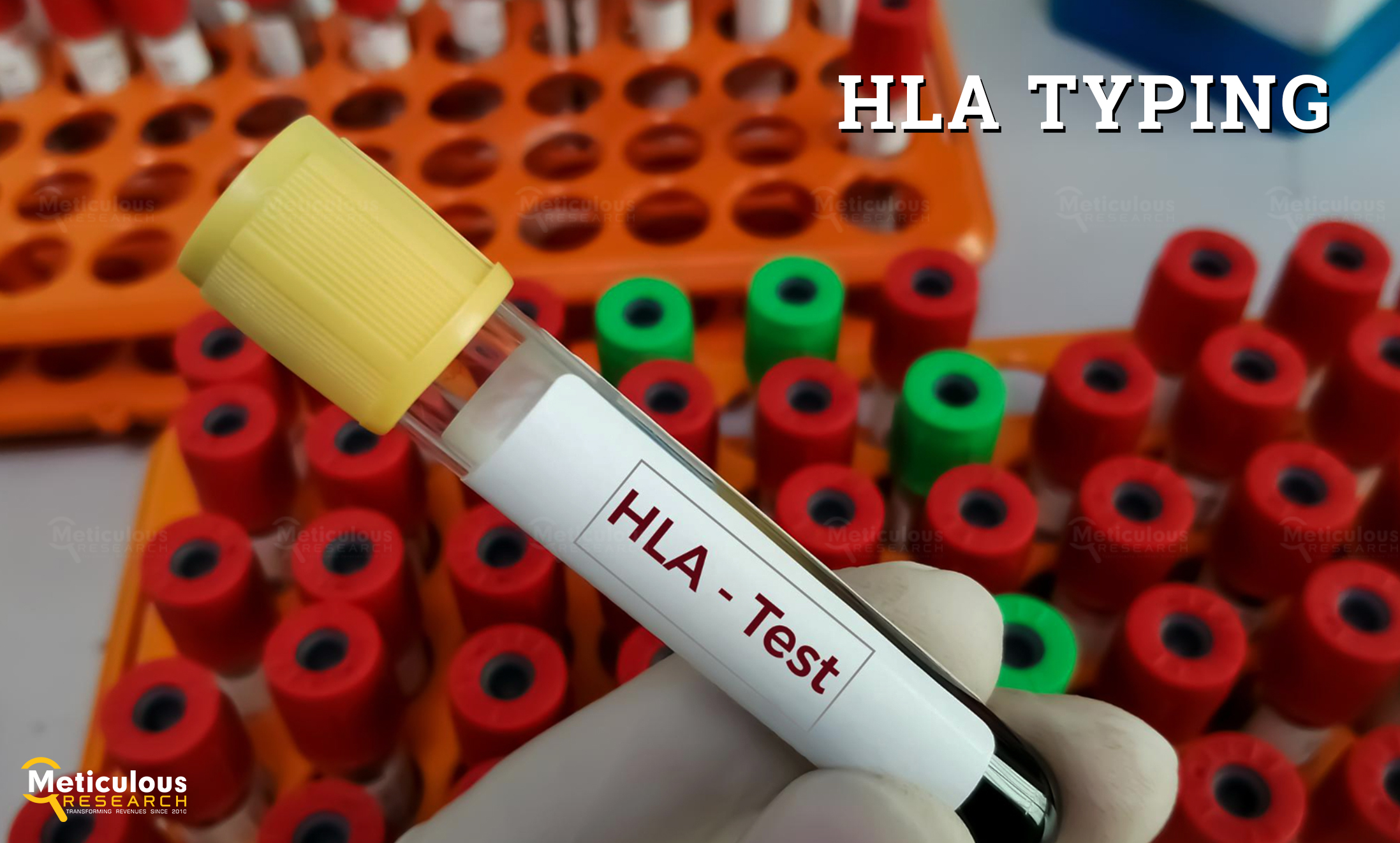
HLA Typing Market is projected to expand at a compound annual growth rate (CAGR) of 5.6% from 2022 to 2029, with an anticipated value of $1.9 billion by the end of 2029.
The Human Leukocyte Antigen (HLA) typing market is poised for robust expansion, projected to grow at a compound annual growth rate (CAGR) of 5.6%, reaching an estimated value of $1.9 billion by 2029, according to a recent report by Meticulous Research®.
Download Free Sample Report: https://www.meticulousresearch.com/download-sample-report/cp_id=5311
HLA genes, which are present in nearly all nucleated cells, play a vital role in the body’s acceptance or rejection of allogenic grafts. Successful organ transplants hinge on the precise matching of HLA genes or markers between donors and recipients. This critical aspect underscores the importance of HLA typing, particularly as the demand for organ transplants escalates.
Rising Incidence of Organ Failure Fuels Demand
A growing prevalence of conditions such as diabetes, hypertension, metabolic syndrome, and chronic kidney diseases significantly contributes to organ failure, thereby increasing the need for transplants. According to the Centers for Disease Control and Prevention (CDC), approximately 37 million people in the U.S. were diagnosed with chronic kidney disease (CKD) in 2021, heightening the risk of organ failure. In tandem with the rising organ failure rates, improved success rates and post-transplant outcomes further bolster the market’s growth trajectory.
Technological Advancements Transforming HLA Typing
Technological innovations in molecular assays are driving the adoption of HLA typing solutions. Historically, serological assays were employed for HLA typing; however, limitations such as low-resolution typing and lengthy blood sample transport times led to cross-reactivity and misidentification of antigens. The advent of polymerase chain reaction (PCR) technology marked a turning point, providing enhanced accuracy and resolution. Nevertheless, challenges remained, prompting a shift toward Sanger sequencing methods to better distinguish between alleles.
Request For Sample Report: https://www.meticulousresearch.com/request-sample-report/cp_id=5311
The emergence of Next Generation Sequencing (NGS) and third-generation sequencing technologies represents a breakthrough in HLA genotyping. NGS facilitates the parallel sequencing of DNA molecules, allowing for the comprehensive characterization of entire HLA genes and achieving high-resolution typing. Third-generation sequencing offers long reads and effectively mitigates the PCR bias issue arising from the differential amplification efficiencies of templates.
Key industry players are increasingly focused on launching innovative solutions based on these advanced technologies. For instance, in 2021, Thermo Fisher Scientific introduced a rapid next-generation sequencing assay capable of delivering high-resolution data within five hours, particularly beneficial for characterizing HLA genes in solid organs from deceased donors. Additionally, in December 2021, Genome Diagnostics B.V. (GenDx) unveiled NGStrack reagents and TRKengine software, designed for HLA typing and chimerism monitoring through next-generation sequencing.
Broader Applications Beyond Transplants
HLA typing is not limited to organ transplantation; it also plays a crucial role in diagnosing infectious diseases, immune disorders, and certain cancers. The HLA region is linked to individual susceptibility to various diseases, with specific HLA genes implicated in autoimmune disease diagnoses. For example, the presence of HLA-B27 antigens in white blood cells is associated with several autoimmune conditions, including ankylosing spondylitis, reactive arthritis, and juvenile arthritis.
Conclusion
In summary, the HLA typing market is set for substantial growth, propelled by the increasing demand for organ transplants and innovative advancements in HLA typing technologies. As the market evolves, it presents significant opportunities for industry stakeholders to enhance patient outcomes and improve the efficiency of organ transplantation.
Buy Now: https://www.meticulousresearch.com/Checkout/18936631
Related Reports:
Chromatography Consumables Market: https://www.meticulousresearch.com/product/chromatography-consumables-market-5169
High-performance Liquid Chromatography (HPLC) Market: https://www.meticulousresearch.com/product/high-performance-liquid-chromatography-market-5395
Autoimmune Disease Diagnostics Market: https://www.meticulousresearch.com/product/autoimmune-disease-diagnostics-market-5405
About the company:
We are the trusted research partners for leading businesses around the world, providing market intelligence focused towards building revenue transformation strategies. Our research is used by Fortune 500 organizations to attain success by scouting next generation revenue opportunities well ahead of their competition.
Contact:
Meticulous Market Research Inc.
1267 Willis St, Ste 200 Redding,
California, 96001, U.S.
USA: +1-646-781-8004
Europe : +44-203-868-8738
APAC: +91 744-7780008
Email- sales@meticulousresearch.com
Visit Our Website: https://www.meticulousresearch.com/
Connect with us on LinkedIn- https://www.linkedin.com/company/meticulous-research







